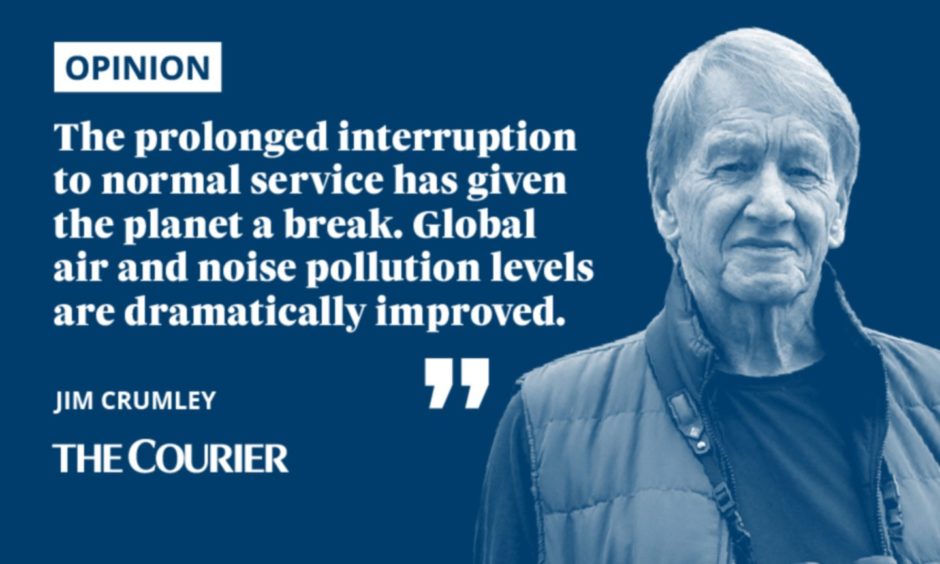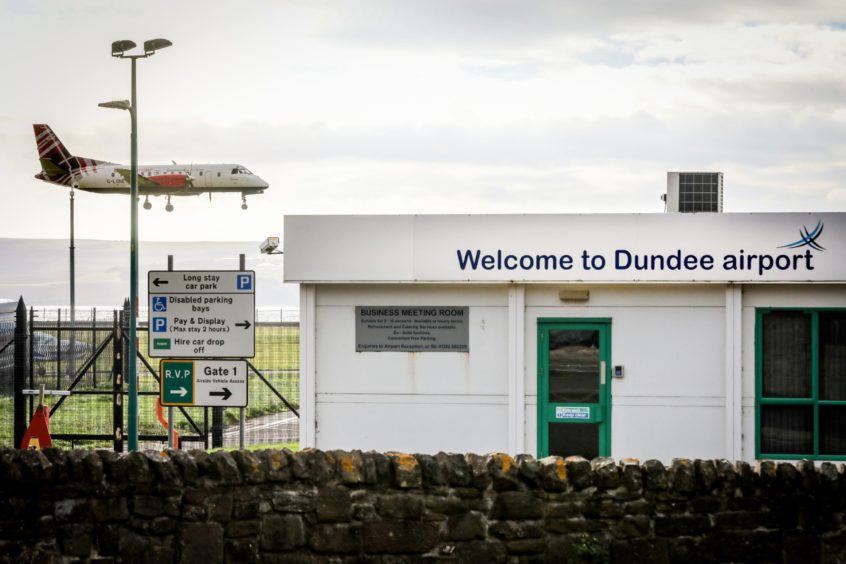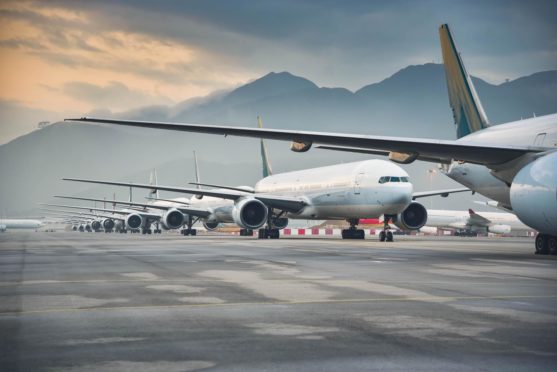Here is a parable for our own times. As you know, all parables have a moral at the end. This one is different. It has a moral at the beginning.
It has to do with aeroplanes, with airports, and with flying to the sun for a well-earned holiday, and the moral of the parable is this: don’t.
Let’s say for the sake of argument that your destination is Barcelona. Barcelona suits my parable because it’s in trouble with the EU for devouring internationally important wetland.
A common characteristic of airports is that they are built on the outside edge of the outside edge of the city they were designed to serve on land which is often not suitable for anything else.

Take Dundee’s. The land it’s built on used to be in the river. It wasn’t land at all. But I am guessing that you are less likely to fly to Dundee on holiday than you are to, say, Barcelona.
The thing about every major international airport is that always they want more. More space, more runway, more flights, more passengers. More money.
All of which creates more jobs and fuels the economy. The bit they don’t like to talk about is the bit where they help to kill the planet.
Because they want more, they need more flights, which means more planes, which means more of the worst form of pollution humankind has invented.

It also means more land, and more land means evicting the neighbours, and at Barcelona, that means the inhabitants of an internationally important wetland called the Delta del Liobregat.
Over the years, the airport has embarked on the inevitable expansion and more airport equals less wetland.
What’s at stake here? Well right now, it’s flamingos, it’s turtles, it’s 350 species of birds, 1000 species of plants, a resting place for vast numbers of migrating birds.
What it was like before the airport moved in next door is hard to imagine. But so are the consequences of what might happen if the current airport expansion plan goes ahead.
Numbers don’t add for environment
The Catalan business association talks gleefully about the outcome: passenger numbers surging from 55 million to 70million a year.
Not a moment too soon, the EU has intervened, criticising the airport’s failure to protect the wetland and warning against further expansion.
The timing is intriguing. International air travel has stalled in mid-air, you might say, because of the Covid virus.
The fact is – and this something else you won’t hear aviation authorities talking about either – the prolonged interruption to normal service has given the planet a break.
Global air and noise pollution levels are dramatically improved.
It should be a time for say, a UN-driven conversation to consider international air travel’s future, to recalibrate our sense of values and of what makes good economics.
Year-on-year growth is a villainous outcome if it is achieved at the expense of the planet.
Where is the plan to constrain commercial aviation’s world-wide operations within strict limits, to reduce its footprint on the face of the Earth and its carbon footprint on our airspace?
If we don’t learn something about ourselves from our traumatic encounter with Covid 19 … then we fail ourselves as a species, and every other species on the planet too
An increase of passengers from 55 million a year to 70 million might work wonders for the local economy in Barcelona. But it cannot be achieved without grossly diminishing the biodiversity of the delta, and that would be too high a price to pay even if it were the only airport in the world asking for more.
But Barcelona is symptomatic of the international air travel industry the world over, which takes me back to the parable of our own times.
If we don’t learn something about ourselves from our traumatic encounter with Covid 19, if we don’t learn to re-evaluate our relationship with the planet, if we don’t volunteer to sacrifice some of the more self-indulgent foibles of what we used to call everyday life so that life on Earth truly does become sustainable again… then we fail ourselves as a species, and in the process we fail every other species on the planet too.
Nature is all there is
We should stop using the expression “the natural world” as if it was somewhere else from the world in which we live.
There is only the one world, and nature is the only thing that holds it together.
Everything we do that diminishes nature diminishes that one world, for nature is all there is.
I would love to see wild flamingos, a flock of thousands of them. I would love to see wild turtles basking in a sunlit pool. I would love to see wild wolves. I would love to see the redwood forests of California.

But I would need to find a way of getting there that didn’t involve fuelling Barcelona’s airport statistics, or anyone else’s.
The world has changed in the last two years. The suffering of our species at the hands of the virus, grim as it has been, has also illuminated the suffering of the planet at the hands of our species.
As we heal from the virus, so arrives the moment to commit to healing the one world.
